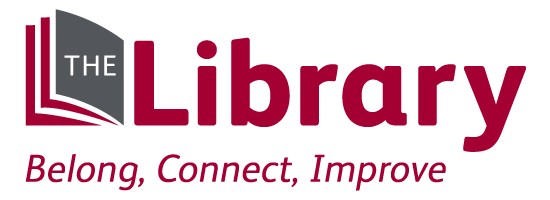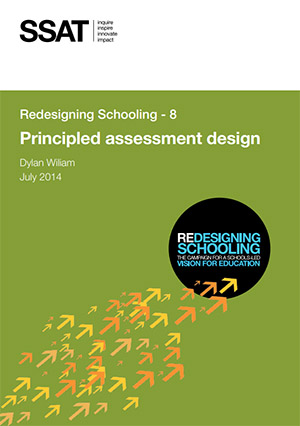
Did you know? You can access 100s of resources by becoming an SSAT member.
Login or enquire today.
Redesigning Schooling – 8: Principled assessment design
This challenging pamphlet “Redesigning Schooling – Principled assessment design” by Dylan Wiliam comes at an important moment. With the removal of national curriculum levels from September, Wiliam argues forcefully that schools must develop their own way of assessing children’s progress, and that this moment represents an ‘extraordinary opportunity’ to design an assessment system that is ‘the servant, not the master, of the learning’.
The premise of this pamphlet is that any assessment system should be designed to support the curriculum in place in a school, rather than having the curriculum designed to fit the assessment system. Or to put it another way, assessment should be the servant, not the master, of the learning.
The freedom presented by the recent changes is obviously a little daunting since schools are losing the support on which they have relied for many years – indeed most of our teachers have known nothing else. But the opportunity to design an assessment system that works for the school, rather than the other way round, represents an extraordinary
opportunity for schools.
Wiliams guides us through a nuanced way of thinking about assessment that should underpin the design of any model: knowing the limitations of types of assessment and the impact these have on the inferences you make; defining what you will assess and the purpose for which you will use the data; how you will collect, share and/or record it; and, critically, how you can design assessment systems that first and foremost support teaching and learning. ‘Good summative assessment requires teachers to share a construct of quality, while good formative assessment requires helping students share the same construct of quality.’
Recommended reading
Principled assessment design: Life beyond levels at KS3
This case study explores Shenley Brook End School’s innovative shift to an ASK-based assessment system, focusing on attitudes, skills, and knowledge, thereby transforming their educational approach and learning climate.
Read morePrincipled assessment design: Feedback to inform learning – Kingsford Community School
Explore how Kingsford Community School revolutionised marking and feedback, engaging students with dialogic methods and practical tools, enhancing learning outcomes.
Read morePrincipled assessment design: Assessment without levels – Grazebrook Primary School
Grazebrook Primary's approach to assessment without levels reflects the importance of depth of understanding within a framework to measure progress based on expected levels of achievement in each school year.
Read morePrincipled assessment design: Assessment in maths to inform planning
This case study explores Eggar's School's development of the use of fine-detailed assessment and feedback to drive standards of teaching and learning and lead to better outcomes.
Read morePrincipled assessment design: Assessment without levels – Durrington High School
Durrington High School's case study presents an innovative KS3 assessment model, focusing on knowledge and skill mastery. It emphasises formative feedback and high standards to inspire student excellence.
Read morePrincipled assessment design: Feedback to inform learning – Bethnal Green Academy
This case study explores Bethnal Green Academy's use of ‘book looks’ to ensure a consistent, whole-school approach to marking and feedback that impacts on the learning and progress of all students.
Read moreSSAT Membership
Join SSAT to gain free access to our widest range of CPD, programmes, tools and resources.

